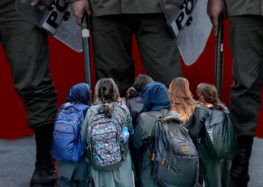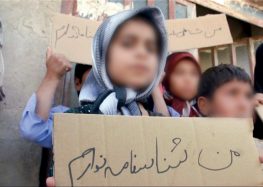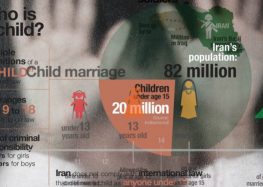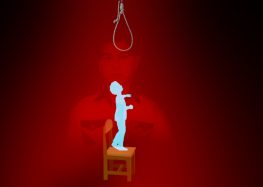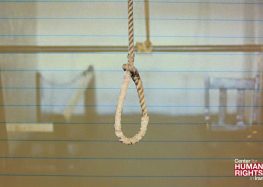Female Iranian MPs Demand Action on Stalled Bill Aiming to Preventing Child Abuse
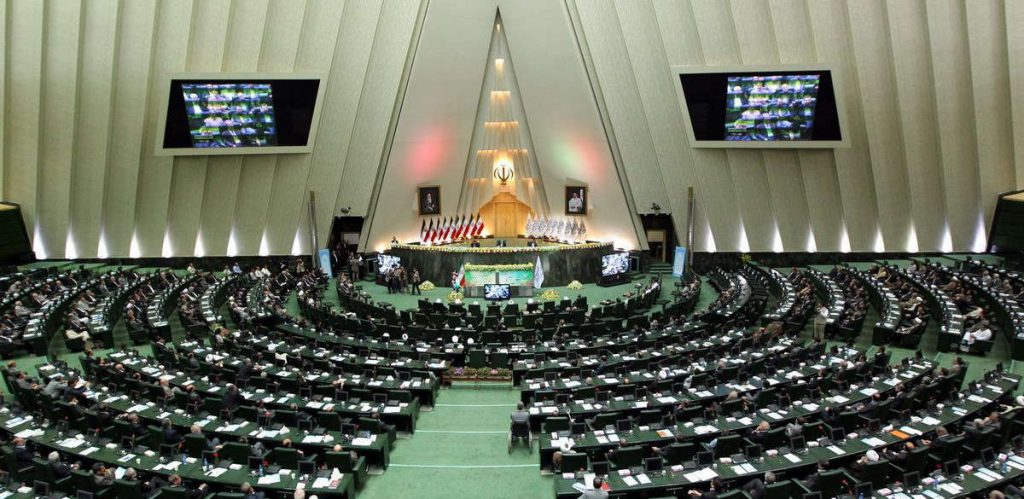 Lawyers Point to Existing Laws and Lack of Enforcement as the Real Problem
Lawyers Point to Existing Laws and Lack of Enforcement as the Real Problem
Some Iranian female lawmakers have called for immediate deliberations on a bill for the protection of children to prevent future cases of child abuse in Iran.
“The increase in incidents of child abuse is not becoming of the Islamic Republic. We cannot deal with child abuse with our current laws,” said Member of Parliament (MP) Masoumeh Aghapour Alishahi, a member of the Women’s Faction.
“The existing legal vacuum is causing delays in the prosecution of child abusers,” she added in an interview with the official parliamentary news agency, ICANA, on February 7, 2018.
There are 17 female lawmakers in the current parliamentary session, at least 14 of whom (all holding reformist or moderate views) are members of the Women’s Faction. It is not known how many MPs support the call.
“In our letter to the speaker [Ali Larjani], we urged the legislature to begin immediate deliberations on the bill for the protection of children,” Alishahi said.
The letter has not been made public.
The Bill for the Protection of Children and Juveniles was initially drafted by the Judiciary and submitted to then-President Mahmoud Ahmadinejad’s government in 2009. Two years later, it was handed to Parliament where it has been stalled at the committee stage ever since.
In September 2017, MP Hassan Norouzi, the spokesman for the Judicial and Legal Affairs Committee, said he hoped that the bill would be submitted to the full session of Parliament for a vote “in two weeks” but more than four years later, no date has been set.
The bill has not been published but it is believed to contain more than 40 articles dealing with issues such as repeated violence at home, child trafficking and other criminal activities.
The issue received renewed attention following the acquittal of Saeed Toosi, a well-known Quran reciter, of child abuse charges on January 26, 2018.
In July 2017, the rape and murder of seven-year-old Atena Aslani, whose body showed “signs of sexual abuse,” also caused public outrage.
An Iranian attorney told the Center for Human Rights in Iran (CHRI) that the real problem is the lack of enforcement of current laws protecting children in the country.
“I have read the bill,” said Nemat Ahmadi in an interview on October 20, 2017. “It has a clear objective but lacks details. It would be good to write more complete laws, but that isn’t enough. The question is: Does society have the resources to meet the legal requirements?”
Ahmadi, who has worked on many child abuse and discrimination cases, added, “Our current laws are not bad. We can start implementing them until the bill in Parliament is ratified.”
Article 5 of the Law for the Protection of Children and Juveniles (2002) states that “child abuse is a public crime that does not require a private complainant.” Article 4 prohibits “any form of harm, harassment, abuse or physical or mental torture of a child.”
Another Iranian attorney, Farideh Ghierat, pointed out to CHRI that Islamic law protects fathers from being held accountable for child abuse. According to Iran’s Islamic Penal Code, fathers are not punished for taking their children’s lives.
“As long as in theology the father is considered the owner of his children, nothing can be done to deal with fathers who abuse their children,” Gheirat told CHRI.

